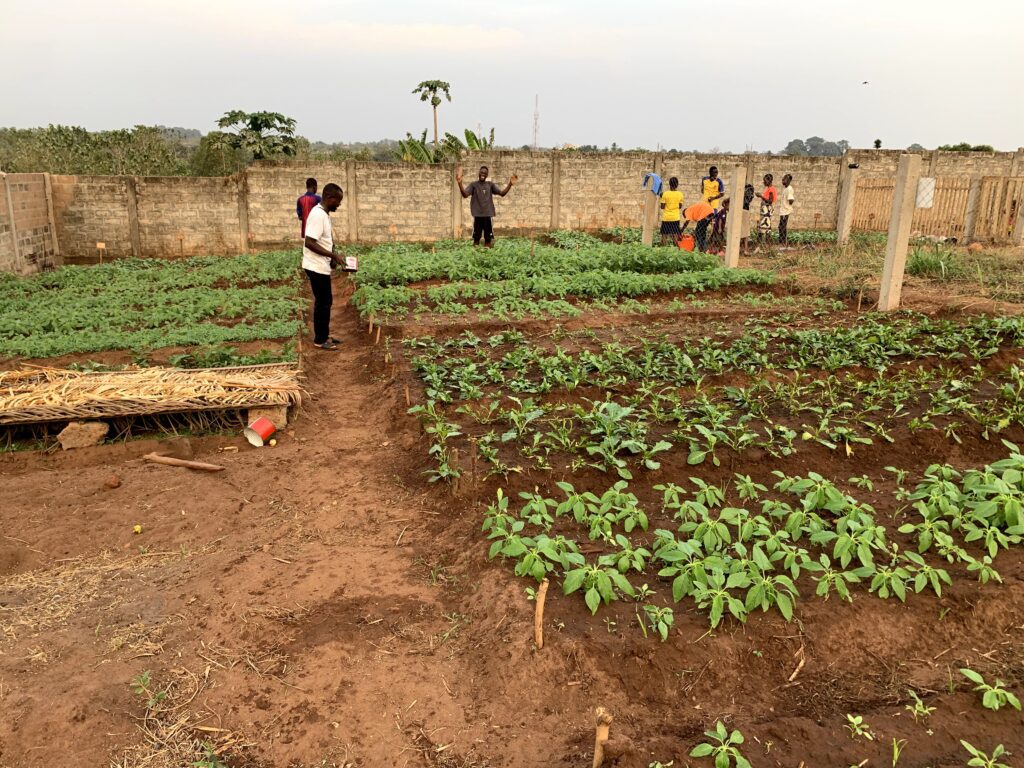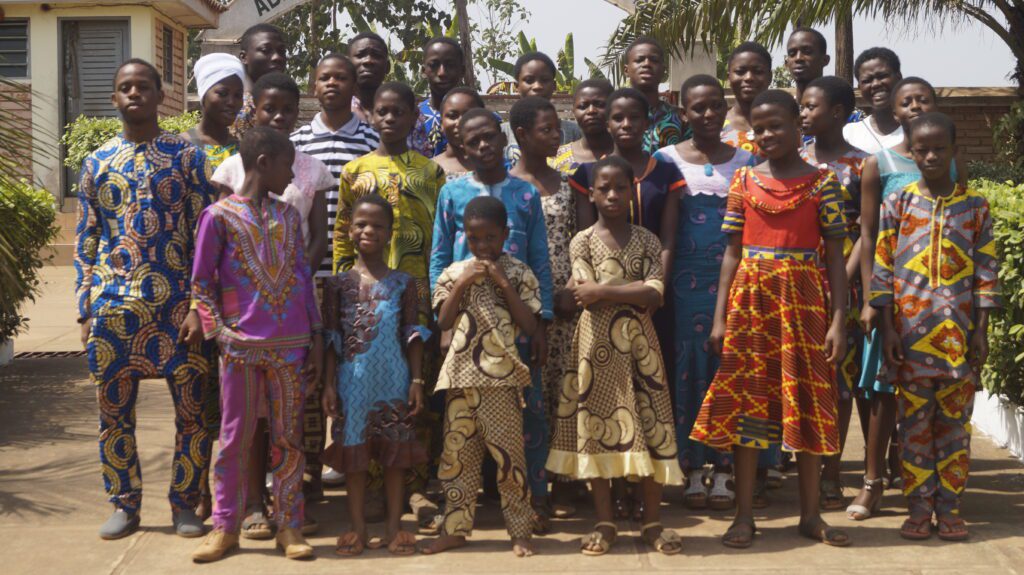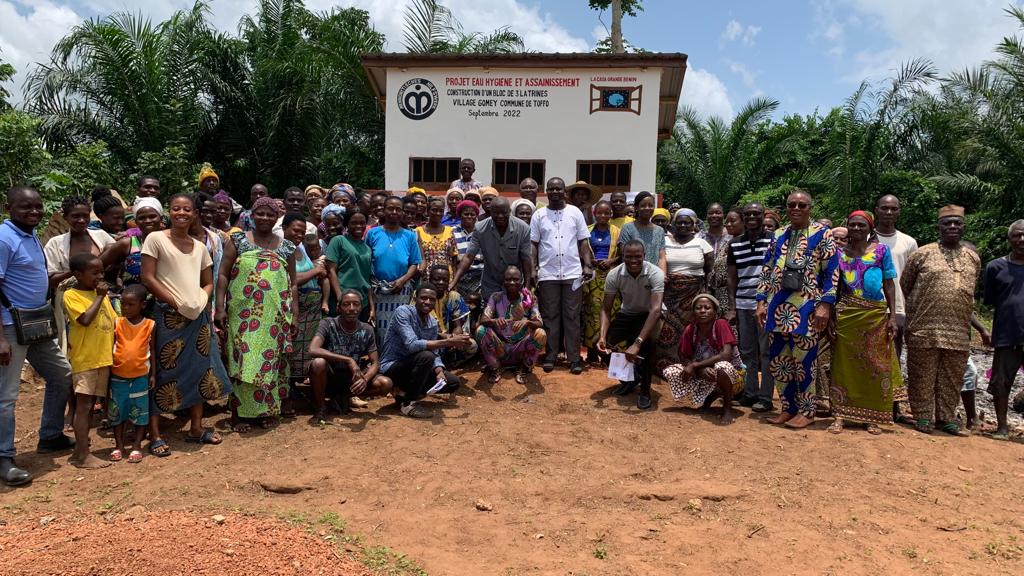Courier: Perspectives
Africa: Benin
Casa Grande, in Benin, was founded by mission workers from Burgos Mennonite church in Spain (Iglesia Evangélica Comunidades Unidas Anabautistas, part of MWC member church Anabautistas, Menonitas y Hermanos en Cristo – España) who were involved in Benin Bible Institute. Today, partners include Mennonite Mission Network, Mennonitiches Hilfswerk, Mennonite Men and others. Casa Grande is a member of the Global Anabaptist Service Network (GASN).
It’s a pleasure to see this wonderful God whose children are everywhere and whose love is poured out on all of them, wherever they are.
Casa Grande started as a home for children who were orphaned or needed more support than their families could give. Today, we have expanded our activities to include education (primary through secondary) and vocational training along with sharing the Word of God through these development actions in communities. Farming, clean fuel sources and waste management projects include a pig-rearing unit, creating ecologically friendly charcoal and latrine-building.
Our education ministry pays special attention to girls who often face pressure to drop out. Additionally, there are supports for children with disabilities and other vulnerabilities. The centre has recruited a physiotherapist and speech therapist to work with these children.
Our waste management, recovery work and creation care work trains women and girls in the community on how to maintain and use latrines, make cooking fuel from garbage and make better compost.
When you see streets lined with trees in the community of Allada, it means that the Casa Grande is approaching. Our neighbourhood is different from the other neighbourhoods because the streets are lined with trees. It’s a demonstration of our environmental protection efforts and a sign of our struggle against deforestation.
When we support a child’s education at our Leaders of Africa school, family members are involved. The children in our ministry who are directly affected by our work in 2023 number 86, but we can estimate the number of those indirectly affected to be close to 800. To estimate the number of people we reach, we multiply because we assume that this child has a father, a mother and a sibling. By supporting the child, it’s already a relief for the family members.

The lost daughter
When her family fell on rough times, a girl of six or seven who we will call “F” was sent to live with a rich woman to earn money for F’s aunt. F soon ran away. The police found her and put her into a centre. After five years, F came to live with us in Casa Grande.
We set out to find the family. So, when the child came to us, we set out to find the family of the child. We spent many nights, we travelled many kilometres, we crisscrossed villages.
Nearly 200 km away from Casa Grande, we found a family who had a story of a lost daughter, very much like the girl in our home. We listened to the story of the child’s separation from her family.
Suddenly, a young woman came out of the house who looked just like F, as if she were the older sister. “This is our child!” we said! Another woman appeared who also looked like F after they had told us their story. The older woman showed us a photo of the daughter she had lost and we showed her a photo of the girl we had found.
When we showed the photo to the mother, she ran around the village. She threw herself on the ground, cried, shouted and jumped for joy. “Glory to God! Oh, God has found my daughter again!” It was a day of celebration; the village came out in droves to surround us.
This story has touched the whole community, and we still have a relationship with F, whom we returned to her mother. The whole family was so happy because their lost girl had been found.

Everyone belongs
People didn’t like disabled children learning together with healthy children. But through the support project for disabled children, we have created inclusion, where healthy children and disabled children grow side by side and study in the same classroom.
Two little boys from unwed mothers have come into our care with great medical needs.
One, whom we’ll call T, was given to the care of his aunt who neglected him. He had a severe level of malnutrition. When you look at T, all you could see were his bones. A neighbour called the police who took him to the hospital, but the aunt would not pay for his care. So, a judge issued a placement order to bring the child to our home.
Even when the child was entrusted to us, we were a bit afraid, but we are very happy that God could use us to save this child’s life. Today, when people come to see the child, they do not believe he is the same child.
But we reply, it is the child!
The other child, whom we’ll call P, has a mother who is in prison and who is struggling with her mental health. She threw him away like a parcel, so the juvenile judge ordered the child to be taken into our care.
When we brought him home 10 months ago, we discovered he has a severe case of sickle cell anemia, a disease that is very difficult to treat. Every month, we spend days in the hospital with P, but we haven’t been in the hospital for nearly 4 months now.
We started praying and P is doing very well now.
His mom is still in prison, so we pray with P, meditate on the Word together and help this child discover his future and to feel the warmth of God’s love.
—Koissivi Bienvenu KADJA is the national coordinator of Casa Grande in Allada, Benin, since 2019. He joined the team in 2011 and has worked in several roles.
Website: casagrandebenin.org
